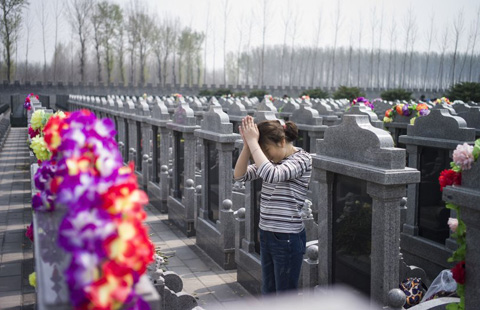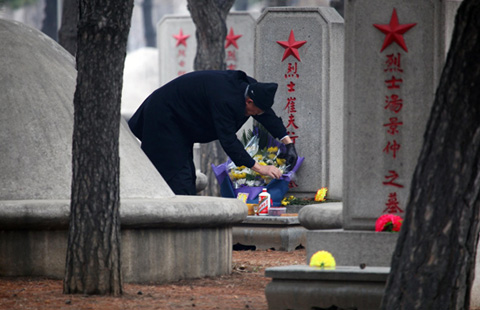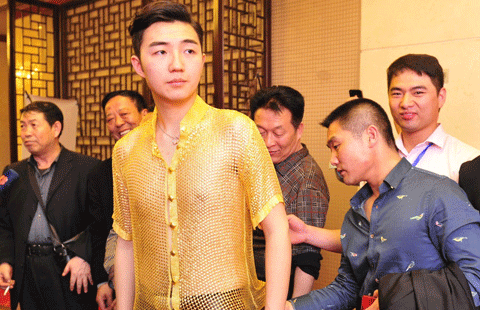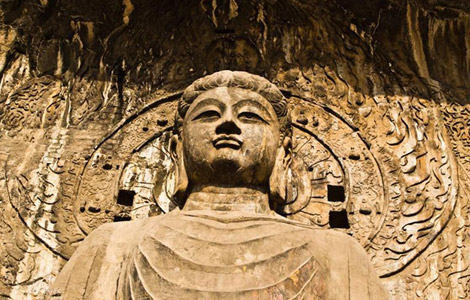Overseas Chinese entrepreneur turns genealogy into business
Updated: 2015-04-06 10:11
(Xinhua)
|
||||||||
BEIJING - Chinese people traditionally sweep the tombs of their ancestors on Qingming Festival, which falls on April 5 this year. But some overseas Chinese have few clues as to who their ancestors even were.
Lie Huihan used to be one of them. Growing up in the Dutch countryside, Lie often wondered why his appearance was different from that of the other children around him.
His family followed the Chinese traditions of eating longevity noodles during birthdays and sweeping the family tomb during Qingming Festival, but his parents and grandparents do not speak Chinese and have never been to China.
Lie grew curious about his Chinese roots and started tracing his family tree after graduating from college in 2003. He found a distant relative from his mother's side and learned where his ancestors came from.
In 2008, he took his mother to the village near Zhangzhou city, Fujian province in southeastern China, where they toured old houses and an ancestry temple with their "distant-distant" relatives.
"I had a sense of being connected when I walked around in the small village, where the ancestors of my mother lived about seven generations ago," said the 36-year-old Lie.
Lie's great-great-great-grandfather moved from China to Indonesia in the 1840s to seek better economic opportunities, and his grandfather moved to the Netherlands, Indonesia's former colonizer, in the 1950s.
Lie said his personal experience inspired him to start his own business to help overseas Chinese learn more about their ancestry. He explained that, compared with well-established genealogy services in the West, there was an untapped opportunity to research family history for the fifty million overseas Chinese living in Southeast Asia, Australia, North America and elsewhere.
His own company, My China Roots, was founded in 2012 and is located in an office at the Temple of Earth Park near the Lama Temple in Beijing.
"We help you trace your ancestry, put your roots in context, and visit your ancestral village in China," the company website claims.
Lie has served over thirty clients, most of whom were referred through word of mouth or online.
He first asks his client to provide as much information as possible, then searches online and contacts local overseas Chinese affairs offices in addition to gathering historical materials to locate a client's ancestral village.
- HK commemorates 25th anniversary of Basic Law
- Chinese city removes family consent provision for body donation
- Solar Impulse 2 Pilot appeals for clean future
- Chinese vice premier meets Thai princess
- Northeast Chinese government fined for destroying family tombs
- China live broadcasts pandas' failed natural mating

 Former president Fidel Castro appears in public in Cuba
Former president Fidel Castro appears in public in Cuba
 Now and then: Changing funeral trends
Now and then: Changing funeral trends
 Chinese honor war heroes on Tomb Sweeping Day
Chinese honor war heroes on Tomb Sweeping Day
 Lunar eclipse turns the moon 'blood red'
Lunar eclipse turns the moon 'blood red'
 2015 New York International Automobile Show kicks off
2015 New York International Automobile Show kicks off
 Ancient 'Xiangshi' kicks off in Wuzhen
Ancient 'Xiangshi' kicks off in Wuzhen
 Golden moments at jewelry show
Golden moments at jewelry show
 Luoyang, the ancient capital of thirteen dynasties
Luoyang, the ancient capital of thirteen dynasties
Most Viewed
Editor's Picks

|

|

|

|

|

|
Today's Top News
China promotes eco-friendly burials
US benefits from high-level engagements with China: Lew
China to develop city clusters along middle reaches of Yangtze
HK commemorates 25th anniversary of Basic Law
Family consent not needed to donate corpse for research in Guangzhou
Xi plants roots of
green awareness
Li backs firms' global vision
China to standardize energy conservation by 2020
US Weekly

|

|






